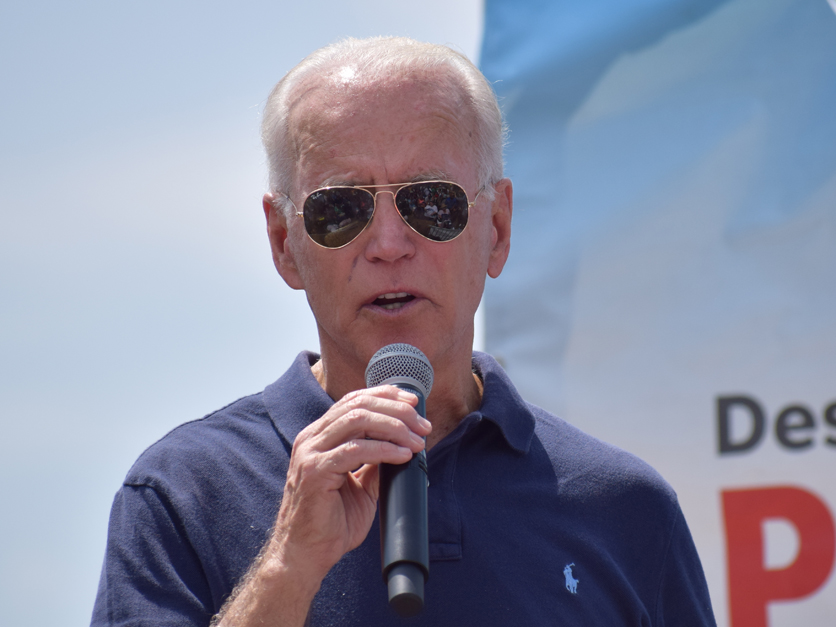Rural Democrats will be watching whether this week’s Democratic National Convention, conducted online because of the COVID-19 pandemic, puts a focus on concerns that could peel some voters away from President Donald Trump, including the gaps in rural broadband and his trade war with China.
“We certainly want Vice President Biden to speak out and be forceful about how he is going to turn the Chinese trade debacle around,” DNC delegate Theresa Keaveny of New Ulm, Minn., told Agri-Pulse.
Keaveny, who is executive director of the Sustainable Farming Association of Minnesota, also wants to hear about Joe Biden’s plan to fix the healthcare system, help biofuels, sustainably produce food, and trade.
Democrats say they’re determined not to repeat the mistake they believe Hillary Clinton made in 2016 when some think she conceded rural areas of the Midwest battleground states to Trump. Democrats don’t have to win rural areas and small towns, but they do need to cut into GOP margins there if they want to win states such as Iowa, Wisconsin, Michigan and Pennsylvania, all of which Trump won in 2016.
Both Biden and Kamala Harris, a California senator who dropped out of the presidential race in December 2019, put out detailed rural policy plans ahead of the Iowa caucuses, and Biden has continued to press proposals for expanding rural broadband and for addressing climate change in a way that he says would benefit the farm economy.
The party's 2020 platform also includes more detailed proposals on ag and rural policy than usual, including calls to direct more farm subsidies to small and medium-size farms while making the agriculture sector the first in the world to eliminate net carbon emissions. The platform includes a section on global trade that denounces President Donald Trump’s "reckless" tariff war.
Polls indicate Biden may be making inroads among rural and small-town voters. According to a Fox News poll that was conducted Aug. 9-12, Trump led Biden in rural areas, 52% to 38%.
A study of 2016 exit polls, found that Trump defeated Clinton by 62% to 34% in rural areas and small towns. A separate study of validated voters by the Pew Research Center found that 35% of Trump voters were from rural areas, compared to 19% of Clinton voters.
Trump needs to win rural regions by large margins in November if he’s going to offset Democratic gains in the suburbs.
“The rural vote for Trump is basically less than it was in 2016 at this point, significantly less, which could have an impact in a couple of key states,” former Agriculture Secretary Tom Vilsack told Agri-Pulse.
"The point is first and foremost to lessen the (Trump rural) margin, so you don't have to have an overwhelming margin in suburban and urban areas," he added.
Vilsack, who advised Biden on his rural and agriculture policy proposals. is speaking at a Democratic rural caucus event on Tuesday as well to DNC delegates from Wisconsin and Minnesota during the week.
There also will be events aimed at firing up state delegations in addition to Vilsack’s appearance. Montana Sen. Jon Tester, an organic farmer, will host an online watch party for Nebraskans on Thursday, the night Biden gives his acceptance speech.
The convention will be on the air for two hours each night. The Monday lineup of speakers includes Minnesota Sen. Amy Klobuchar, a member of the Senate Agriculture Committee, and former First Lady Michelle Obama.
Tuesday’s schedule includes the roll call of delegates to ratify Biden’s nomination and a speech by former President Bill Clinton and Biden’s wife, Jill.
On Wednesday, Harris will speak along with former President Barack Obama. Biden closes out the convention Thursday night with his acceptance speech.
Rob Larew, president of the National Farmers Union, said in an Agri-Pulse Washington Week in Review interview that his group will be monitoring both the DNC and the Republican convention, which starts Aug. 24, to see what their vision is for “prosperity for farmers and rural Americans.”
“I certainly am encouraged by a lot of the plans and policy positions that Biden has put down, but we’ll be listening for a little more detail on what that means,” he said.
Interested in more coverage and insights? Receive a free month of Agri-Pulse.
Jim Moore, a delegate from northwest Nebraska better known as “Doc Moore,” told Agri-Pulse that if Biden and Harris really want to reel in rural voters, they need to discuss local and economic issues that impact voters directly. He said this includes how a Biden administration can fix the “oligopoly control” of the crop and livestock sectors.
“If Democrats would spend time, and not just come out every four years, but spend time and speak to local issues, we could start to peel away some Republican votes,” Moore said.
Keaveny, the Minnesota delegate, thinks Harris will connect well with rural women voters despite being a coastal progressive.
“She has had to fight to get where she is. There are a lot of confident women in rural areas who can relate to that and I believe they will be certainly looking at her abilities and what she stands for,” Keaveny said.
Vilsack said Biden, not Harris, is ultimately the candidate that matters when rural Americans vote. "They know Joe, and frankly the president's effort to brand him in a way that is different than who he is, is just not going to work," Vilsack said.
For more news, go to: www.Agri-Pulse.com



